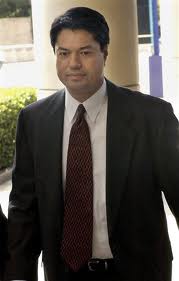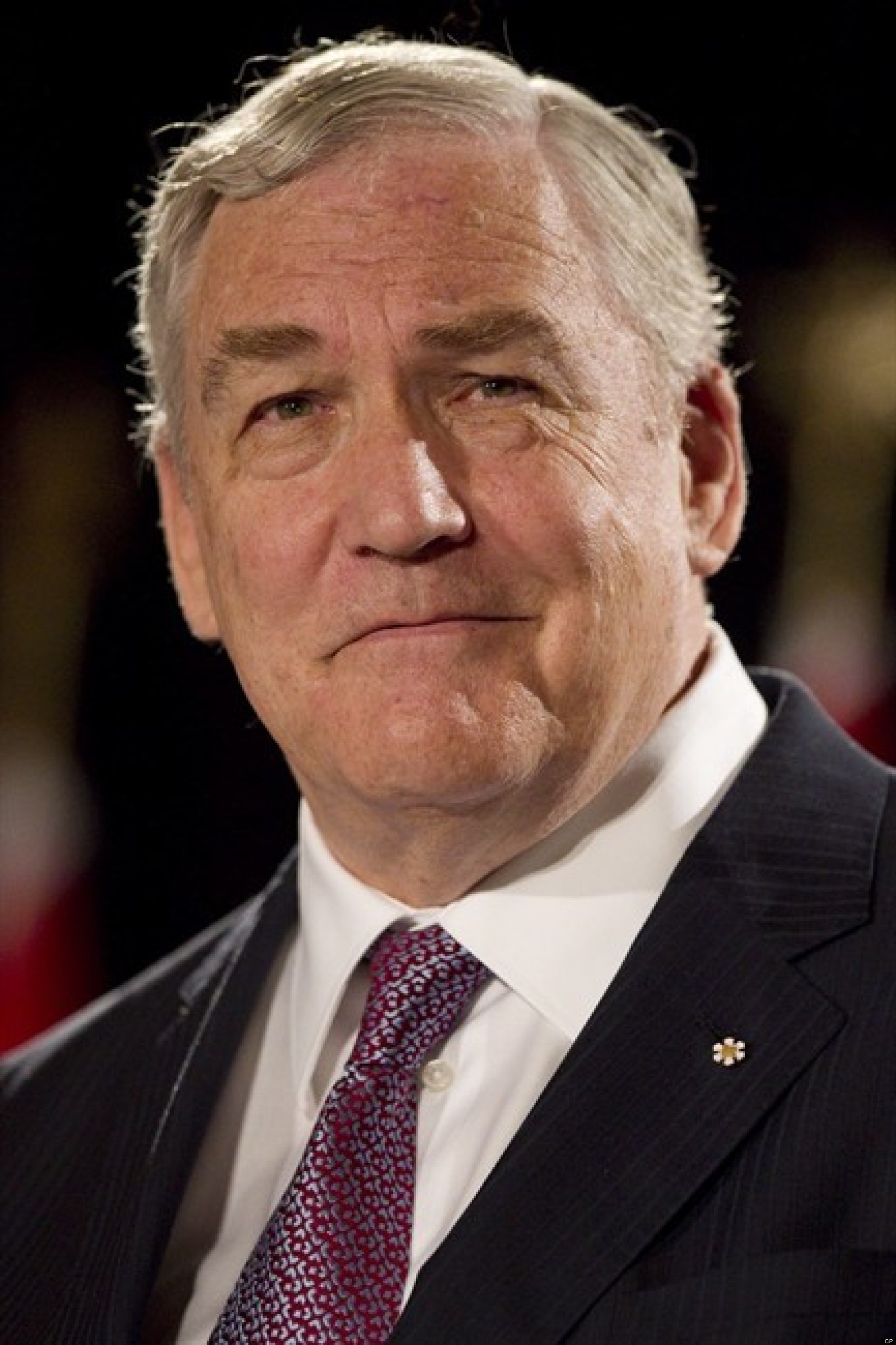 The title to this post poses an unsettling question on this day when we pay tribute to those who sacrificed their lives for our freedom.
The title to this post poses an unsettling question on this day when we pay tribute to those who sacrificed their lives for our freedom.
But recent revelations from the trial of the civil case relating to the criminal trial of former Dynegy mid-level executive Jamie Olis reveals that some powerful forces did not consider Olis’ freedom worth very much at all.
Earlier posts on this blog reported that the Department of Justice threatened to put Dynegy out of business unless it threw Olis under the locomotive of the DOJ’s criminal investigation of a complicated structured finance transaction called Project Alpha.
The Chronicle’s Tom Fowler follows up with this revealing article regarding the nature of the enormous pressure that the DOJ brought to bear on Dynegy’s leaders to abandon Olis:
The letter from the U.S. Attorney’s Office that arrived at Dynegy’s headquarters on Jan. 9, 2003, was hardly welcomed by CEO Bruce Williamson.
“We have become increasingly concerned that Dynegy’s ‘cooperation’ is more apparent than real,” read the letter from former U.S. Attorney Michael Shelby, referring to an investigation of a deal called Project Alpha. “As a result, we are re-evaluating whether we can continue to rely on Dynegy’s claim of good faith cooperation with the investigation.”
Williamson was just a few months into his new job trying to turn around the troubled natural gas and power company. Dynegy teetered close to bankruptcy as it dealt with an industry-wide fallout of Enron’s collapse, a flagging stock price, and civil and criminal investigations.
When Williamson met Shelby face to face the next day, he was lectured on what Dynegy needed to do to avoid criminal charges.
“I walked out of there a few pounds lighter,” Williamson testified in court last month.
“An indictment clearly would have put the company out of business.” [. . .]
Shortly after the January 2003 meeting, Williamson testified, Shelby sent him the Thompson Memo. Williamson said he saw it as a message to stop paying fees for Olis and Foster.
Several months passed, during which Shelby’s office built its case against the trio.
On June 12, indictments against them were unsealed, and they were arrested.
Shelby made a point of thanking Williamson publicly that day for his cooperation, and even sent a wall plaque for his office saying as much.
A month later, on July 15, an assistant U.S. attorney called Larry Finder, a Haynes & Boone lawyer representing Dynegy, asking why the company was still paying for Olis and Foster’s legal fees.
On July 18, Williamson sent an e-mail to Shelby saying he was “totally supportive of trying to modify our legal support posture. I have wanted to do so for some time.”
Shelby wrote back the next day, thanking him for “looking into this” and adding, “I think it is in neither of our interests to have the company pay for the defense of individuals whose actions were so egregious.”
So much for the presumption of innocence, eh?
Fowler also provides this related article regarding the testimony from the civil trial by Olis, who did not testify during his criminal trial that initially resulted in a barbaric 24 year prison sentence. Based on Olis’ testimony, it appears that over a half-dozen unnamed Dynegy employees should be giving thanks to Olis for their freedom:
Jamie Olis repeatedly turned down offers to cooperate with prosecutors, even after the former Dynegy worker was sentenced to 24 years in prison.
“I just couldn’t do it,” he testified in a civil trial this month.
Olis spoke by phone from federal prison in Bastrop during the trial, where his former attorney won legal fees from Dynegy that he claimed the company held back under pressure from prosecutors. A recording of the testimony was obtained by the Houston Chronicle.
Olis testified that in May 2003, shortly before he and two co-workers were indicted for their roles in Project Alpha, the government pressured him to make a deal. Olis said an assistant U.S. attorney took him aside after a hearing and said: ” ‘Hey, we know you’re the small guy on this stuff, plead guilty and you don’t owe anybody anything.’ “
Olis declined, and he and his boss, Gene Foster, and co-worker Helen Sharkey were indicted on June 12.
In August 2003, after Foster and Sharkey entered plea agreements, Olis said he was offered a similar deal but he didn’t take it. Even after he was found guilty in November 2003 and later sentenced to 24 years in prison, he said prosecutors tried to get him to enter into a deal that would reduce his sentence.
Lloyd Kelley, an attorney representing Olis’ former attorney in the trial, asked if he was tempted to take it.
“I did think about it, but there was no way I could have done it,” Olis said.
“Why?” Kelley asked.
“Because it wasn’t a matter of just pleading guilty,” Olis said, his voice trembling with emotion. “What they wanted was for me to tell the story that I and everyone else engaged in a conspiracy.”
The “everyone else” was a list of more than a half-dozen Dynegy workers that Foster said in the criminal trial had conspired to withhold information about Alpha from outside accountants. No one beside Olis, Foster and Sharkey has been charged.
“And I couldn’t ruin those people’s lives,” Olis continued in a halting voice. “I’m Catholic. And I can’t do that.”
Olis claimed Foster’s testimony about a conspiracy wasn’t truthful.
“We were all consistent in our SEC depositions, and we never talked to each other,” he said, referring to statements the three gave to the Securities and Exchange Commission. “Then at the trial Mr. Foster comes on after pleading guilty and does a 180, and starts to say we had a conversation.”
So, Olis works on Project Alpha with over a dozen other Dynegy employees, lawyers and accountants in an effort to improve the company’s earnings.
In the inflamed anti-business environment of the immediate aftermath of Enron, the SEC launches an investigation of the transaction, to which Olis cooperates.
The U.S. Attorney decides to criminalize the transaction and makes Dynegy’s CEO an offer that he cannot refuse — throw Olis and a couple of his co-workers under the bus and the federal government will not put Dynegy out of business as it did with Arthur Andersen.
When Olis is the only one of the defendants who provides a consistent story in both the SEC investigation and the criminal case, the DOJ prosecutes him to the hilt, resulting in a 24 year sentence, later reduced to “only” six years.
For what it’s worth, the current U.S. Attorney sees nothing wrong with all of this.
As we contemplate on this Memorial Day the sacrifices that have assured our freedom, do any of us really think that we could preserve that freedom and stand upright in the winds of the overwhelming governmental power that was brought to bear on Jamie Olis if that power were turned on us?
Judge Kaplan, I hope you are listening.
Like this:
Like Loading...
 Following up on a post on this blog from a couple of weeks ago, the WSJ’s ($) Paul Davies and David Reilly report on how the shadow of former Dynegy executive Jamie Olis is hovering over the pending criminal proceedings against 16 former KPMG LLP executives in New York. Larry Ribstein and Peter Lattman comment on the issues confronting the former executives in attempting to obtain a fair trial after the prosecution browbeat KPMG to stop paying for their defense.
Following up on a post on this blog from a couple of weeks ago, the WSJ’s ($) Paul Davies and David Reilly report on how the shadow of former Dynegy executive Jamie Olis is hovering over the pending criminal proceedings against 16 former KPMG LLP executives in New York. Larry Ribstein and Peter Lattman comment on the issues confronting the former executives in attempting to obtain a fair trial after the prosecution browbeat KPMG to stop paying for their defense.


 The longstanding criminal investigation and finally the indictment of the class action plaintiffs’ firm Milberg Weiss Bershad & Schulman has been a common topic on this blog, so it has been with interest that I have been following the WSJ’s Nathan Koppel, Peter Lattman and Ashby Jones’ excellent coverage (see
The longstanding criminal investigation and finally the indictment of the class action plaintiffs’ firm Milberg Weiss Bershad & Schulman has been a common topic on this blog, so it has been with interest that I have been following the WSJ’s Nathan Koppel, Peter Lattman and Ashby Jones’ excellent coverage (see 
 In
In 
